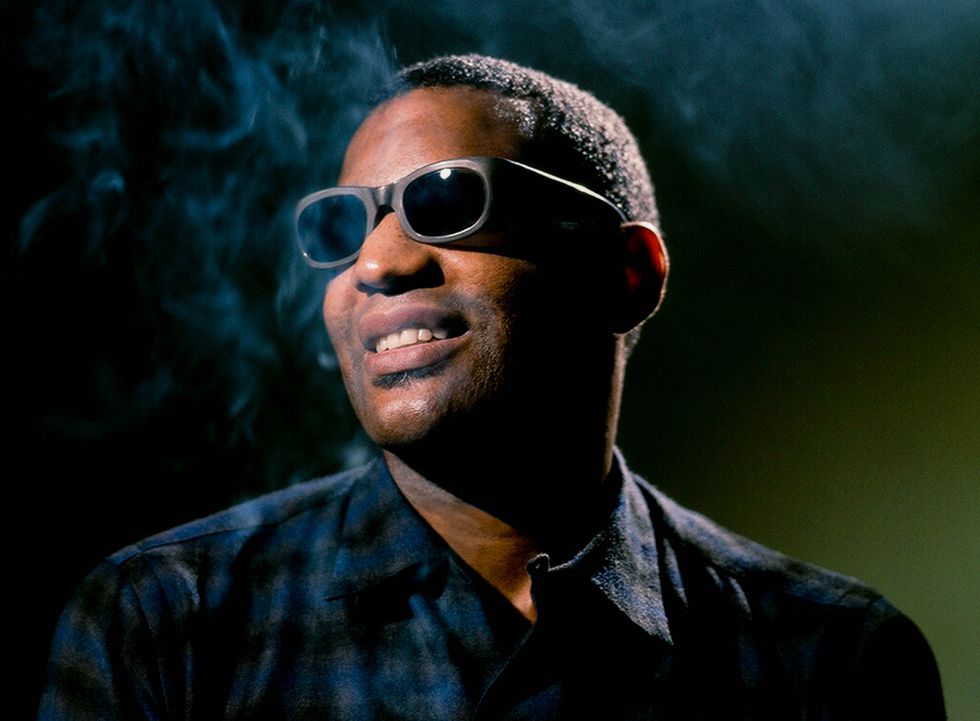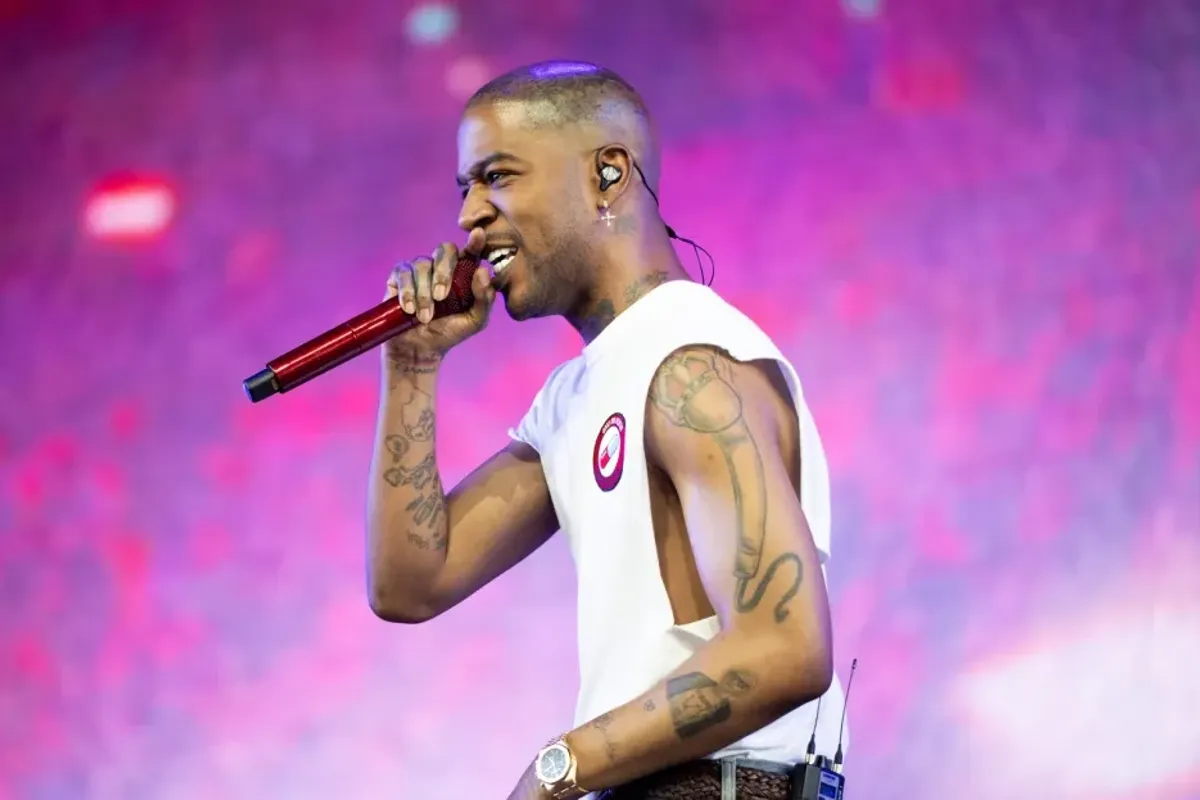Ray Charles - Confessin’ The Blues
Few performers have wielded greater influence over a generation of aspiring musicians than Charles. Here is a look at the life and legacy of a true musical pioneer.

By Bill King
During the 1950s, ‘60s, and ‘70s you could travel the back roads from Louisiana to California to upstate New York and sneak into just about any juke joint and hear a Ray Charles clone belt out a rendition of Georgia. Few performers have wielded more considerable influence over a generation of aspiring musicians than Charles. Some would perhaps argue Frank Sinatra, but that’s like comparing Kawhi Leonard to Kobe Bryant.
The real test for evaluating the impact of a performer is by counting the number of imitators out there. In Charles’ case, they were too numerous to address. Charles did it with soul-wrenching phrases in songs like Mess Around, Going Down Slow, I’ve Got A Woman, What I Say, Hallelujah, I Love Her So, Just For A Thrill, Unchain My Heart, I Can’t Stop Loving You, and You Are My Sunshine.
I can positively say that rarely did those karaoke takes on Charles hold my attention, yet, when looking out beyond the bandstand at the number of approving eyes in the audience, it did put a smile on the face of the impersonators; especially if they succeeded in mimicking a memorable Charles inflection.
Charles had over 70 top ten singles to his credit, but to measure his success by tabulating the money-makers would be an insult. It’s really the volume of timeless recordings (which number in the hundreds) that make him an unforgettable icon.
For many, it’s all about the first years of discovery. The root that took hold and grew into a redwood. That moment when hands, heart, and mind touched earth and birthed something new.
For successful artists, there seems to be certain traits or events that have shaped their lives. Often, there are moments of quiet desperation, isolation, family upheaval, and poverty. But above all, there is a fierce determination to overcome these obstacles. You can call it inner strength, but it’s something much more profound.
Ray Charles Robinson was born September 23, 1930, in Albany, Georgia. A few months later the family moved to Greenville, a little town in northern Florida, 40 miles from the Georgia border. During these early years, he became acquainted with poverty. Charles has mentioned that even amongst the other black families in Greenville, they were at the bottom of the ladder. Nevertheless, his mother, Aretha, provided the family with a strict sense of values. Strong moral convictions upstaged her weak physical presence. Aretha didn’t drink, smoke, or swear. And there were set rules - the most significant was no begging or stealing.
Early on, Charles was intrigued by the simple pleasures - country-life and the wonders of nature; sun, thunder and lightning storms - and music. Charles recalls in his excellent autobiography, Brother Ray (written with David Ritz), that the love of music was there from the beginning:
“I heard it early, just as soon as I was seeing or talking or walking. It was always there – all shapes, all kinds, all rhythms. Music was the only thing I was really anxious to get out of bed for. I was born with music inside me. That’s the only explanation I know of since none of my relatives could sing or play an instrument. Music was like one of my parts. Like my ribs, my liver, my kidneys, my heart. Like my blood. It was a force already within me when I arrived on the scene. It was a necessity for me – like food or water. And from the moment I learned that there were piano keys to be mashed, I started mashing ‘em, trying to make sounds out of feelings.”
Charles’ childhood innocence was shattered at age five with the tragic loss of a younger brother, George, who drowned in the family’s outdoor bathtub. A few months later, Charles began to experience eye problems. They began tearing and over time the tears turned to mucus, so thick that Charles would have difficulty opening his eyes early morning. It was soon discovered Charles was suffering from glaucoma.
Charles recalls being relatively undisturbed by his worsening condition, perhaps because the deterioration occurred over two years. It was a gradual process which began with blurred images and culminated in a state of total blindness. Aretha actively sought opinions and advice to his condition and, through contacts in the white community, she learned about the State School for the Blind in St. Augustine. It was determined the young Charles would learn to read and write.
In September 1947, seven-year-old Charles left homebound for the state school. He missed home life yet wasn’t averse to school, and it was within these walls his prodigious gifts blossomed.
It was year two when Charles began receiving formal music lessons. As mentioned in Brother Ray: “You could see how important the piano was to me, even at eight. When I was a kid, I never thought about being famous or rich, but I did think about being great. I wanted to be a great musician, and, early on, I understood who the great musicians were, I could hear them. From the earliest days, I was interested in winning the respect of genuine musicians. High standards had been set for me. I knew what real blues singing and boogie-woogie were all about. I had learned about jazz piano. The older I got, the more-keen the competition became. Musically, I was raised during a time of absolutely no compromise. Either you could play your instrument, or you couldn’t.”
The lone radio at school played the melodies of Glenn Miller, Tommy Dorsey, Glen Gray, Benny Goodman, Artie Shaw, Art Tatum and Oscar Peterson, which Charles took to imitating, especially the hits of the day. At age 11, he was beginning to write his own arrangements and compositions, and in the years that followed learned to compose in Braille.
In May of 1945, Charles was suddenly orphaned when Aretha died. Grief-stricken by tragedy, he left school and moved to Jacksonville, Florida to pursue a career in music. The next 10 years, Charles criss-crossed the south absorbing a variety of influences - borrowing generously from blues singer Charles Brown and jazz pianist, Nat “King” Cole.
1949, Charles travelled west to Seattle, formed the McSon Trio, and made his first recordings. During a session in Los Angeles, Charles cut an original called Baby, Let Me Hold Your Hand.He sang in a Charles Brown style, smooth blues with gentle bends between notes. It turned out to be his first hit, appearing on the R&B charts and selling 100,000 copies over two to three years.
The pre-Atlantic years are some of his most memorable. Charles’ voice carries the suffering he felt with the loss of his mother and sounds like a man three times his age. The blues notes fell under his fingers as if they were tied directly to each beat of his ailing soul. The lyrics flow directly from the heart – I’m Just A Lonely Boy, All to Myself Alone, Misery In My Heart, A Sentimental Blues, and Blues Is My Middle Name. All spoke of similar themes.
The 1950s Charles found a new musical context for the blues. Like Louis Armstrong’s band, his innovative style became popular and influential amongst players looking to bridge the past with the present. His arranging became the model of all the great rhythm and blues bands to follow from James Brown to the Muscle Shoals groups, the Memphis Horns and Tower of Power. The primary function of the writing was to give the singer a jolt. This, in turn, would help Charles create dozens of major hits.
Charles’ septet was patterned after the Basie nonet of the 1930s. He would take the rhythmic shape of gospel songs and replace the lyrics with his own words. He’d then blend in country blues, a bit of jazz and the jump music of stylist Louis Jordan. This new sound produced I Got A Woman, What I Say, Drown in My Own Tears, Just for A Thrill, and Let the Good Times Roll for Atlantic Records.
Later, some of his best small group work was captured on ABC Records when he recorded I Wonder, Sticks and Stones, Unchain My Heart, Hit the Road Jack, and his biggest hit, Georgia.
The early years of popular music are ones many of us will cherish forever. Corporate domination of music hadn’t yet taken hold. Artists made records that served some inner yearning. The lyrics and music encapsulated periods of great internal conflict in two and three-minute intervals. At times the music was therapeutic, especially when the artist found a moral solution that worked for all of us. At others, all part of our daily calendar – the backdrop to work and play. Oh, how simple, yet complicated life was when all you had to do was address what was stirring in the heart and sing before anyone who would listen. There always seemed to be a willing audience. Georgia!

















